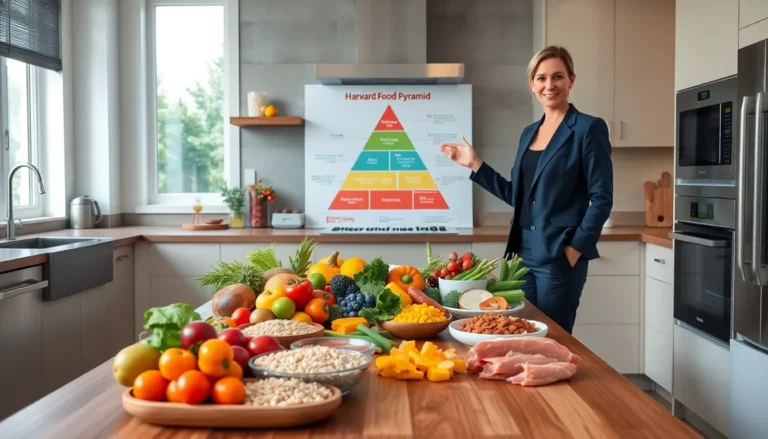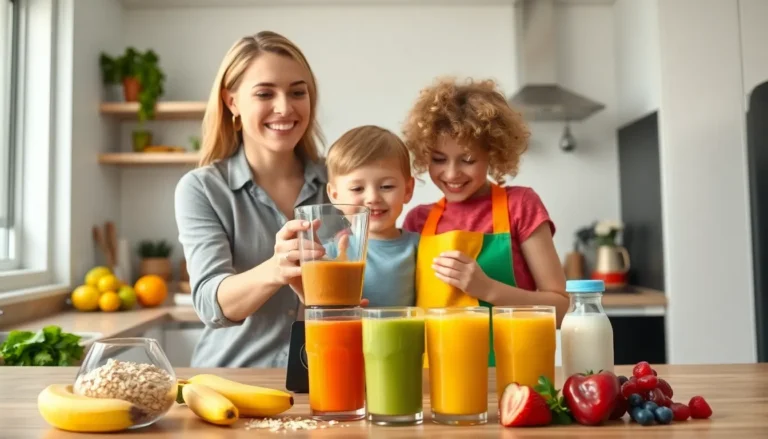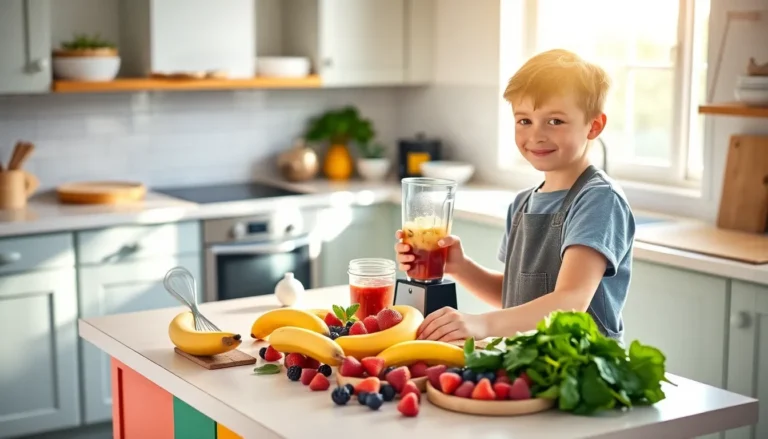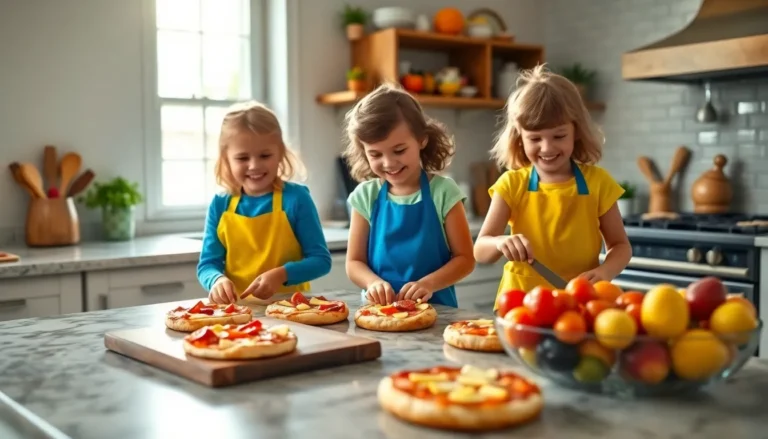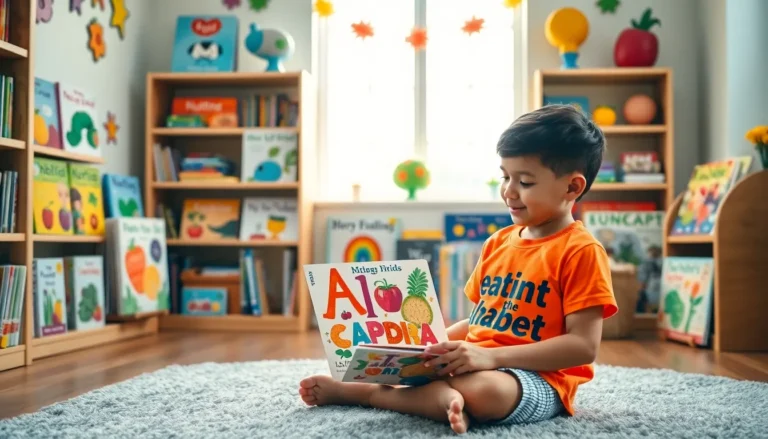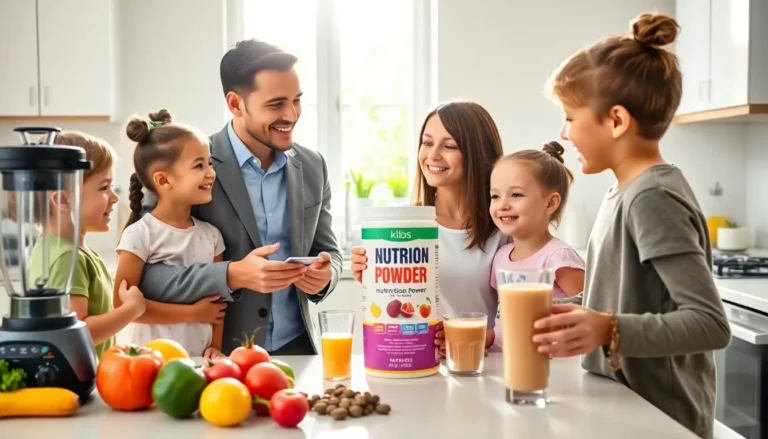Table of Contents
ToggleCooking together can be a delightful bonding experience for parents and children. It’s not just about preparing meals; it’s a chance to create lasting memories while teaching essential life skills. From measuring ingredients to understanding nutrition, parent-child cooking lessons offer a fun way to engage young minds and foster creativity in the kitchen.
These lessons also promote teamwork and communication, as kids learn to follow directions and express their ideas. Whether whipping up a simple snack or tackling a more complex recipe, the kitchen becomes a space for exploration and laughter. In a world where family time often gets overshadowed by busy schedules, cooking together can reignite that special connection and instill a love for healthy eating in children.
Benefits of Parent-Child Cooking Lessons
Parent-child cooking lessons benefit family dynamics in numerous ways. These cooking experiences not only facilitate practical skills but also enhance interpersonal relationships within the family.
Improved Communication Skills
Improved communication skills emerge when parents and children cook together. Participants learn to express thoughts clearly while discussing recipes, ingredient choices, and cooking techniques. Parents can model active listening, encouraging children to share their ideas while valuing their input. Clear verbal and non-verbal cues contribute to better understanding during meal preparation, reinforcing the importance of teamwork. These lessons serve as a practical platform for developing conversational abilities that extend beyond the kitchen.
Strengthened Family Bonds
Strengthened family bonds occur as parents and children navigate cooking tasks together. Collaborating in the kitchen creates a shared goal, enabling families to bond over successes and setbacks alike. Celebrating a well-cooked meal fosters a sense of accomplishment and reinforces positive memories. Regular cooking sessions promote trust and mutual respect, giving family members an avenue to support each other emotionally. This nurturing environment prepares children to build solid relationships outside the home, laying the foundation for lifelong connections.
Types of Parent-Child Cooking Lessons
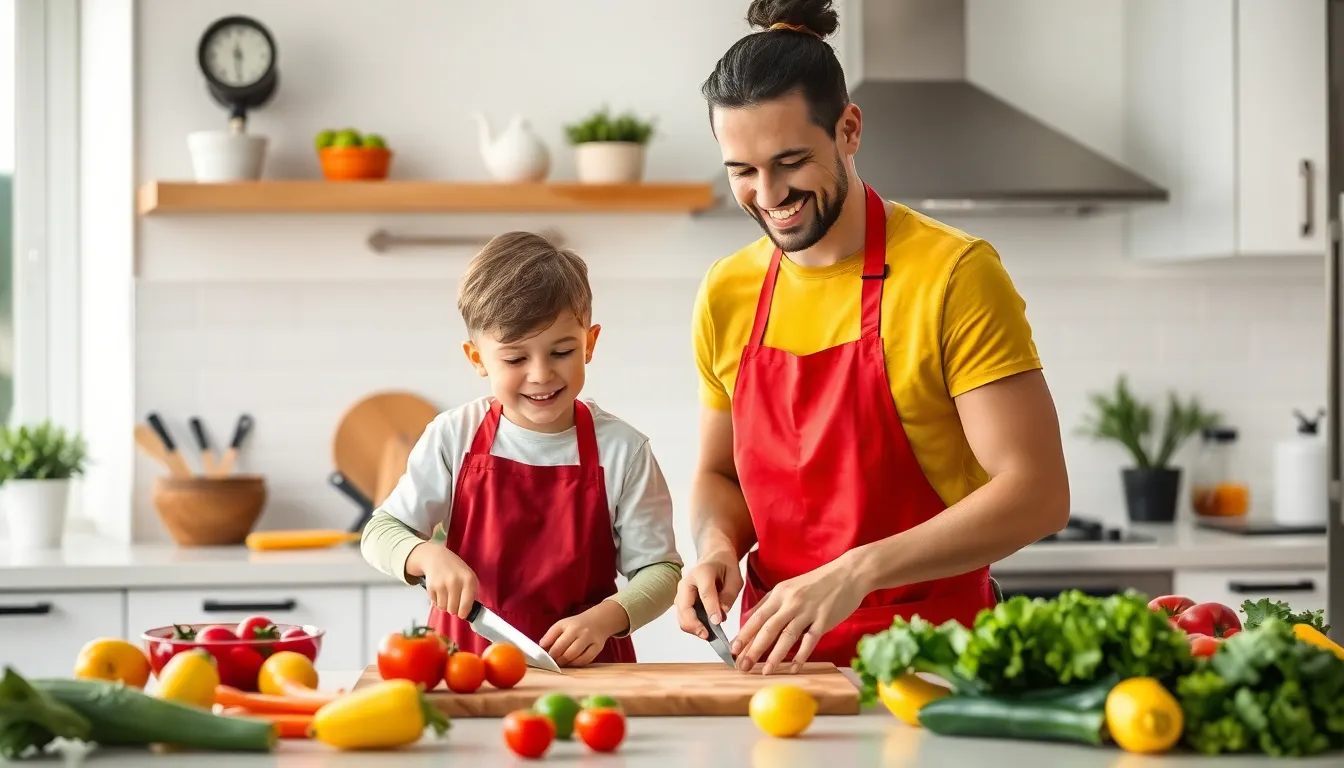
Parent-child cooking lessons come in various formats, each offering unique advantages. Exploring these options can enhance the cooking experience for both parents and children.
In-Person Classes
In-person classes provide hands-on experiences in a shared environment. Participants enjoy direct interaction with instructors and peers. They gain immediate feedback on techniques and presentation. Local culinary schools, community centers, and kitchen stores often host these classes. Class sizes typically range from 5 to 15 participants, fostering a collaborative atmosphere. Parents and children can learn age-appropriate recipes, from simple snacks to more complex dishes. This format encourages teamwork, as both partners navigate challenges and celebrate successes together.
Online Tutorials
Online tutorials offer flexibility for families with busy schedules. Various platforms provide step-by-step video instructions that parents and children can follow at their own pace. Websites like YouTube and cooking apps often feature diverse recipes tailored for different skill levels. Participants can explore international cuisines or focus on their favorite types of dishes. Online lessons allow for repeat viewing, enabling users to practice until confident with techniques. Additionally, many tutorials include tips for healthy ingredient substitutions, promoting nutritional awareness in a fun way.
Tips for Successful Cooking Lessons
Successful parent-child cooking lessons result from careful planning and attention to detail. Implementing effective strategies helps maximize the experience for both parent and child.
Choosing the Right Recipes
Choosing age-appropriate and simple recipes ensures a fun and manageable cooking experience. Select recipes that require fewer ingredients and straightforward techniques, allowing children to focus on learning without feeling overwhelmed. Recipes like pancakes, sandwiches, and fruit salads work well as they involve minimal cooking skills. Incorporating seasonal ingredients can also make selections more engaging, encouraging children to explore fresh produce and understand nutrition. Asking children for their input on the dishes promotes enthusiasm and investment in the process.
Creating a Safe Cooking Environment
Creating a safe cooking environment is crucial for successful lessons. Designate a specific area in the kitchen for cooking activities to minimize distractions and hazards. Ensure that all utensils and tools are age-appropriate, and supervise children while using sharp knives or hot surfaces. Teach essential kitchen safety rules, such as washing hands before handling food and cleaning up spills immediately. Keeping a first aid kit handy also prepares for any minor injuries, allowing the cooking experience to remain positive and stress-free.
Challenges in Parent-Child Cooking Lessons
Cooking lessons present several challenges that parents and children might face together. These obstacles can hinder the overall experience and impact enjoyment and learning.
Time Management
Time management proves crucial in parent-child cooking lessons. Busy schedules often limit available cooking time, leading to rushed sessions that reduce the quality of the experience. Families may need to allocate specific time blocks for cooking to ensure sufficient preparation and cleanup. Establishing clear timelines for each step in the cooking process can help participants stay organized. Creating a checklist of tasks aids in maintaining focus and efficiency, allowing parents and children to enjoy their time together without feeling pressed.
Picky Eaters
Picky eaters pose another challenge during cooking lessons. Children may resist trying new foods or be reluctant to engage with unfamiliar ingredients. Parents can combat this issue by involving children in recipe selection, allowing them to choose meals that pique their interest. Introducing gradual taste tests of new ingredients encourages open-mindedness. Allowing children to customize recipes fosters creativity and makes them more likely to try what they’ve helped create. Addressing picky eating requires patience and flexibility but can ultimately lead to more adventurous eating habits.
Parent-child cooking lessons offer a unique opportunity to strengthen family bonds while teaching essential life skills. By engaging in this shared activity, families can create lasting memories and foster teamwork. The benefits extend beyond the kitchen, enhancing communication skills and promoting healthy eating habits.
Whether through in-person classes or online tutorials, these lessons cater to various schedules and preferences. With careful planning and a focus on age-appropriate recipes, parents can ensure a fun and educational experience. Overcoming challenges like time management and picky eating can further enrich the journey, encouraging children to embrace new flavors and cooking techniques.
Ultimately, cooking together nurtures not only culinary skills but also a deeper connection that can last a lifetime.

